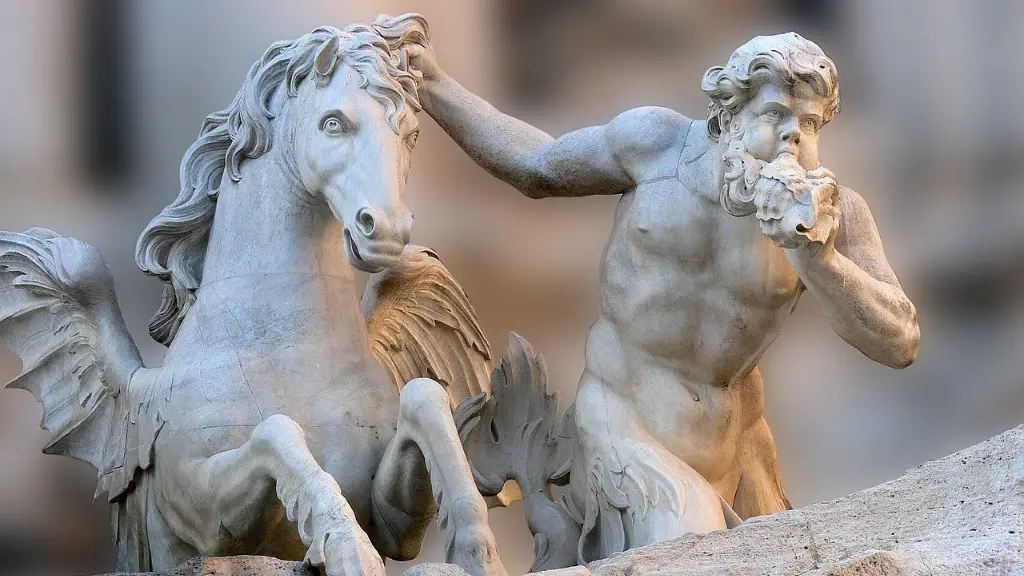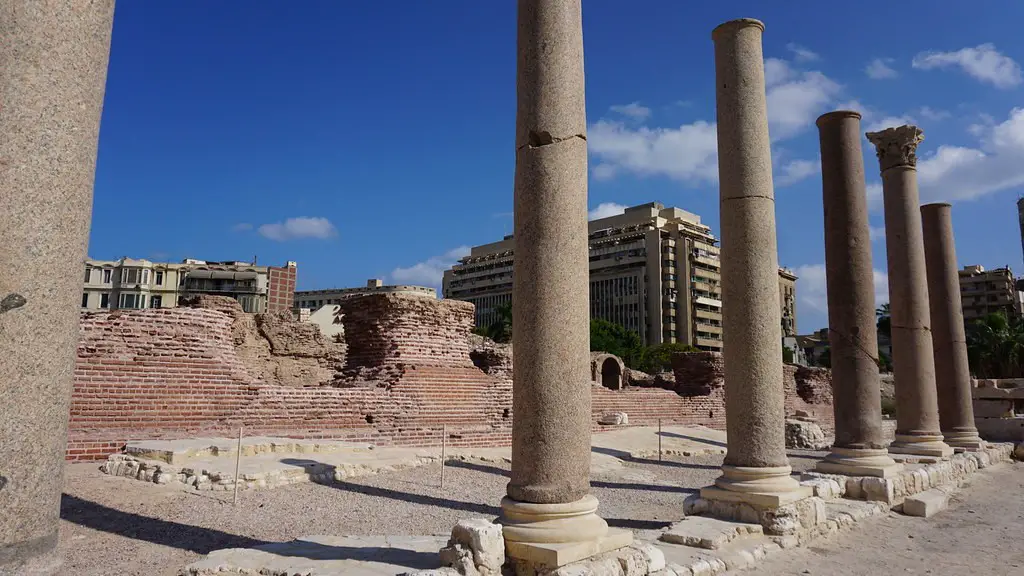Impact of Barbarian Invasions
Ancient Rome was once Europe’s superpower, a great and mighty empire with a culture of unmatched splendor. But, like all great things, the fall of Rome eventually came to pass. Historians largely attribute the fall of Rome to a combination of political, economic, and social factors. One of the most significant contributing factors was Barbarian Invasions.
Barbarians are a term used by Roman writers to describe non-Roman people, particularly those from Germanic branches in the north. Initially, the Roman Empire successfully fended off invasions by such tribes. However, as the Western Empire was exhausted by over-expansionism, the balance of power shifted, and the Barbarians began pushing against the boundaries of the Western Empire. In 455 AD (CE), the Vandals sacked Rome itself, but the main breakthrough came in 476 AD (CE) when the Odoacer deposed the last Emperor of the Western Roman Empire.
The Barbarian Invasions weakened the empire both financially and strategically. They brought chaos and lawlessness, draining the wealth of the Roman economy. Barbarian raiding parties devastated farmland, making it impossible to collect taxes, while the cost of maintaining armies to defend against the Barbarians put a severe strain on the imperial budget. This severely weakened the Roman economy and created an unstable political environment, ultimately leading to the fall of the Western Roman Empire.
Pressure of Nations
Another major factor in the fall of Rome was the pressure of the surrounding nations. At its peak, the Roman Empire controlled most of the Mediterranean and stretched from England in the north to Egypt and the Middle East in the south. However, as Rome exhausted its resources through its expansion, the balance of power started to shift.
The East, in particular, was an area of intense competition. The rival Persian and Byzantine Empires were constantly pushing against Rome’s boundaries and the Roman Empire was unable to hold its own against such strong adversaries. This led to the loss of essential resources and weakened the Western Empire to the point where it could no longer cope with the constant pressure of these rival nations.
Social Disintegration
Aside from the external pressure, Rome’s fall was also due to social disintegration. Ancient Rome was a slave-based economy, and as the population of slaves grew, the economy became increasingly unsustainable. This led to mounting inequality, social tensions, and a lack of solidarity between the free citizens of the empire.
Furthermore, the long-term effects of the civil wars between factions such as the Marians and the Optimates severely weakened the political structure of the Western Empire. Furthermore, the government’s policy of inflicting heavy taxes on its citizens to fund its military campaigns also exacerbated the situation. As a result, there was mounting frustration among the population and civil unrest became increasingly common. This social disintegration ultimately weakened the Roman Empire and contributed greatly to its eventual fall.
Economic Decline
In addition to social and political factors, the fall of Rome was also due to economic decline. At its height, the city of Rome was a center for trade and commerce, with a large and prosperous upper class at its top and a large lower class of labourers at its base. However, as the Western Empire’s resources began to be depleted, the economy started to collapse.
The Roman currency began to lose its value and the slave economy became a financial liability. Additionally, the overextension of military campaigns to the point of bankruptcy left little to no money for infrastructure development and maintenance. The combination of these factors led to a severe economic downturn and contributed to the fall of the Roman Empire.
Rise of Christianity
The rise of Christianity also played an important role in the fall of Rome. Prior to its adoption as the official religion of the Roman Empire in 312 AD (CE), Christianity had been largely looked down upon by the Roman population. However, with the conversion of Emperor Constantine, Christianity suddenly found itself in a position of considerable power.
The emergence of Christianity created a power struggle with the traditional Roman gods and Roman belief systems. This ideological conflict intensified as Christianity continued to grow in influence, further weakening the once-strong bonds of the Roman Empire. Additionally, the spread of Christianity led to an influx of Christian converts; this demographic quickly began to dominate the politics of the Western Empire. In the end, the continued rise of Christianity made it increasingly difficult for the Roman Empire to maintain authority, paving the way for its eventual fall.
Military Anarchy
The militaristic structure of the Roman government also contributed to its downfall. During the later years of the Western Empire, military officers began to assume more power as the government became characterized by military anarchy. This gave rise to a number of ambitious generals, such as Constantine, who were more interested in expanding their own power than maintaining the stability of the empire.
The military anarchy also weakened the imperial economy, leading to shortages of provisions and food, rampant inflation and a generally weakened financial system. This, combined with the mounting social and economic pressures, weakened the Roman government, eventually leading to its downfall.
Conclusion of Pax Romana
Perhaps the greatest contributing factor to the fall of the Roman Empire was the conclusion of the Pax Romana, or Roman Peace. This was the period of relative peace and prosperity in the Western Empire which had lasted for nearly 200 years. During this time, the Roman government had succeeded in maintaining internal peace and stability.
However, as the resources of the empire were exhausted and external threats grew, the Pax Romana began to unravel. This marked the beginning of the end for the Western Empire as the balance of power shifted and external forces started to gain the upper hand. This eventually led to the fall of the Roman Empire in the 5th century.
Obsolescence of Roman Religion
The obsolescence of traditional Roman religion is also an important factor in the fall of the Western Empire. Rome was a polytheistic society, and its people believed in a plethora of gods and goddesses with which they shared a strong spiritual bond. However, with the spread of Christianity in the 4th century, belief in the old Roman gods gradually faded.
As Christianity became the official religion of the empire, the traditional Roman religious practices and rituals began to disappear. As the traditional religion faded away, so did the communal bonds between the people and the empire, weakening the cohesion of the Roman society and leading to its eventual collapse.
Political Incompetence
Besides the external factors, the political ineptitude of Roman rulers in the later years of the empire must also be taken into consideration. Political instability weakened civil society, as corrupt and inept leaders undermined the Roman government. Additionally, with each successive ruler, the empire grew larger and more inefficient, with more resources stretched over more territories.
The Roman bureaucracy had grown inefficient, leading to little to no enforcement of laws. This led to rampant corruption and the rise of powerful crime syndicates which further preyed upon the resources of the empire. The anarchic state of the empire weakened it to the point where it could no longer sustain itself and eventually resulted in its downfall.
Conclusion of Economic Policy
The conclusion of the economic policy of Roman government was another essential factor in the fall of Rome. During its expansion, the Roman government adopted an economic policy of exploiting conquered lands, a system of taxation and redistribution that was based on imbalance of wealth. The Roman government would collect taxes far in excess of what was necessary to fund its military campaigns, leading to a severe financial drain on the empire’s resources.
Furthermore, the government’s policy of rewarding war heroes with great wealth and lands further exacerbated the situation. This unfair taxation system eroded the economy of the empire and weakened its finances, leading to social unrest, inflation, and ultimately the eventual downfall of the Western Empire.


